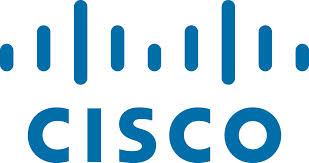Friday, March 31, 2006
Inukshuk - Rogers/Bell Wireless Broadband Partnership - More Questions than Answers
Considering I just saw Ron Close of Bell speak yesterday, today's news about Inukshuk is sure to keep Bell in the public eye, at least until Monday, when I get to see Ron speak again at VON Canada.
Inukshuk - try saying that 3 times fast - is a classic example of something that started out as a great and noble idea, but has turned out to be something else. In my mind, today's announcement raises more questions than answers.
First, what's an Inukshuk? Never thought you'd ask! Let's start there - at the beginning. Most Canadians know the answer - my neighbor has a few in his back yard. The description on the Inukshuk web page says it well...
"Inukshuk is a beacon. For travellers in Canada's North, an Inukshuk is a welcome sight. It says, 'I've been here before; you're on the right path'. In the same way, Inukshuk will be a welcome guide to travellers on the Internet."
An Inukshuk is a marker, used by Eskimoes in the far north - a structure built from flat stones - sturdy, friendly - tells you you're on the right path and you're not so alone. That's exactly what they had in mind intially. The intent of Inukshuk was to bring broadband to remote communities that can't be well served by existing technologies - mainly satellite, which is quite expensive. This was in support of an underlying government wish to have ubiquitous broadband, and to use Internet technology to help improve the quality of life for Canadians living in these remote communities. Broadband would allow this segment of the population to have better access to information, government services, health care, distance learning, etc. All very noble causes, no doubt.
The reality has become quite different. Initially Inukshuk was the ticket for Microcell to enter the market and become Canada's 4th wireless carrier. They have since been folded into Rogers, but that's another story. Somewhere along the line, Rogers and Bell took control of Inukshuk, and jointly agreed to invest $200 million to build a national wireless broadband network.
That brings us to today's much-anticipated news. While the technology sounds great - EVDO for Canada - the plans announced by both Rogers and Bell sound more focused on serving urban markets than the rural hinterlands Inukshuk was intended for. Both Mark Evans and Mark Goldberg posted earlier today about this, and Catherine McLean wrote an online piece for today's Globe & Mail - which I'm cited in.
Taking all this in, the news raises many worrisome questions about what the intentions really are for this offering, and what the implications are for other carriers...
- Most of the announced coverage is in urban markets - Whitehorse is mentioned - that's definitely not urban, but they didn't miss any of Candada's major urban centers. These centers have lots of broadband and lots of wireless already, so why do we need this?
- How is it that 2 carriers - Rogers and Bell - get to build this network and offer it nationally? If we look at the urban markets, this all of a sudden gives them a big window to compete out west against Telus and Shaw. How fair is that? I can't imagine Telus or Shaw are happy about this. They can't do the same in Eastern Canada. It will sure be interesting to see how this plays out in Western Canada. Sure, at face value this is all about allowing entry into new markets for growth and to increase competition. But how can you allow this for one set of carriers, but not the others?
- At one point, Allstream/MTS was a driver for Inukshuk. They haven't been for some time, and in hindsight you've really got to look at this as a missed opportunity for them. Short of getting rescued by an infusion of foreign investment (which may not ever happen), Allstream/MTS has limited options for long term growth. They strike me as the Qwest of Canada, kind of being the odd man out when the music stops.
- Let's be good guys now, and focus on the what Inukshuk is supposed to do - help out rural/remote communities. Bell recently announced they were going to convert their non-urban territories into an income trust - nothing wrong with that. More recently, they've somehow managed to bring Aliant back into the fold, and add all of their subscribers (except Halifax - the most urban part of the Maritimes) to the mix, creating a giant income trust. Where am I going with this? Well, Inukshuk seems to be a shrewd ploy by Bell in the sense that they now have this giant non-urban customer base to service. They can wear the good-guy hat and point to Inukshuk as the vehicle by which they'll be able to economically deliver broadband to a wider swath of this market - which is true. This is good news for income trust investors as this increases the potential for Bell to generate more revenues from this market, and sell more IP-based services, which yield high margins.
- Where is the CRTC in all this? How have they allowed this to happen? My take is this - the just-issued Telecom Review Panel report is advocating a laissez faire approach, which plays beautifully into what Inukshuk looks like to me. Knowing this is where the current regulatory sentiment lies, I'm guessing that Bell and Rogers figure they can push the envelope with Inukshuk, and gamble they won't get much push-back. Stay tuned on that one.
- Toronto is the most urban market in Canada, and is the most important market for both Bell and Rogers. Needless to say, neither is happy about the recent news that Toronto Hydro is about to launch muni WiFi here, and make it free for the first 6 months. Hello, competition! In its current state, Inukshuk allows both Rogers and Bell to get in the game quickly and compete with Toronto Hydro - or more directly, to quash them before they really disrupt the kingdom. It's going to be an interesting summer here, that's for sure.
- Let's not leave RIM out of this while we're speculating. I don't know what the experience has been in the US with EVDO, but could Inukshuk be a Blackberry killer? Really, what's to stop Bell and Rogers from going after the mobile email market? Sure, the bandwidth they're offering is built for Internet, video, multimedia, etc. - that's where the money is. But why not go for email?
All told, the way it looks to me, I don't see most consumers coming out the winner in this one. It just seems to be too much power concentrated in the hands of those who are already the biggest fish in the pond. Sure, it will spark a lot of short-term competition among the majors, but I think it becomes even harder now for new competitors to enter. Just when it looked like the Telecom Review Panel had us set on the right course, we now have to sort out what Inukshuk is really all about. I'm not so sure now myself.
Inukshuk - try saying that 3 times fast - is a classic example of something that started out as a great and noble idea, but has turned out to be something else. In my mind, today's announcement raises more questions than answers.
First, what's an Inukshuk? Never thought you'd ask! Let's start there - at the beginning. Most Canadians know the answer - my neighbor has a few in his back yard. The description on the Inukshuk web page says it well...
"Inukshuk is a beacon. For travellers in Canada's North, an Inukshuk is a welcome sight. It says, 'I've been here before; you're on the right path'. In the same way, Inukshuk will be a welcome guide to travellers on the Internet."
An Inukshuk is a marker, used by Eskimoes in the far north - a structure built from flat stones - sturdy, friendly - tells you you're on the right path and you're not so alone. That's exactly what they had in mind intially. The intent of Inukshuk was to bring broadband to remote communities that can't be well served by existing technologies - mainly satellite, which is quite expensive. This was in support of an underlying government wish to have ubiquitous broadband, and to use Internet technology to help improve the quality of life for Canadians living in these remote communities. Broadband would allow this segment of the population to have better access to information, government services, health care, distance learning, etc. All very noble causes, no doubt.
The reality has become quite different. Initially Inukshuk was the ticket for Microcell to enter the market and become Canada's 4th wireless carrier. They have since been folded into Rogers, but that's another story. Somewhere along the line, Rogers and Bell took control of Inukshuk, and jointly agreed to invest $200 million to build a national wireless broadband network.
That brings us to today's much-anticipated news. While the technology sounds great - EVDO for Canada - the plans announced by both Rogers and Bell sound more focused on serving urban markets than the rural hinterlands Inukshuk was intended for. Both Mark Evans and Mark Goldberg posted earlier today about this, and Catherine McLean wrote an online piece for today's Globe & Mail - which I'm cited in.
Taking all this in, the news raises many worrisome questions about what the intentions really are for this offering, and what the implications are for other carriers...
- Most of the announced coverage is in urban markets - Whitehorse is mentioned - that's definitely not urban, but they didn't miss any of Candada's major urban centers. These centers have lots of broadband and lots of wireless already, so why do we need this?
- How is it that 2 carriers - Rogers and Bell - get to build this network and offer it nationally? If we look at the urban markets, this all of a sudden gives them a big window to compete out west against Telus and Shaw. How fair is that? I can't imagine Telus or Shaw are happy about this. They can't do the same in Eastern Canada. It will sure be interesting to see how this plays out in Western Canada. Sure, at face value this is all about allowing entry into new markets for growth and to increase competition. But how can you allow this for one set of carriers, but not the others?
- At one point, Allstream/MTS was a driver for Inukshuk. They haven't been for some time, and in hindsight you've really got to look at this as a missed opportunity for them. Short of getting rescued by an infusion of foreign investment (which may not ever happen), Allstream/MTS has limited options for long term growth. They strike me as the Qwest of Canada, kind of being the odd man out when the music stops.
- Let's be good guys now, and focus on the what Inukshuk is supposed to do - help out rural/remote communities. Bell recently announced they were going to convert their non-urban territories into an income trust - nothing wrong with that. More recently, they've somehow managed to bring Aliant back into the fold, and add all of their subscribers (except Halifax - the most urban part of the Maritimes) to the mix, creating a giant income trust. Where am I going with this? Well, Inukshuk seems to be a shrewd ploy by Bell in the sense that they now have this giant non-urban customer base to service. They can wear the good-guy hat and point to Inukshuk as the vehicle by which they'll be able to economically deliver broadband to a wider swath of this market - which is true. This is good news for income trust investors as this increases the potential for Bell to generate more revenues from this market, and sell more IP-based services, which yield high margins.
- Where is the CRTC in all this? How have they allowed this to happen? My take is this - the just-issued Telecom Review Panel report is advocating a laissez faire approach, which plays beautifully into what Inukshuk looks like to me. Knowing this is where the current regulatory sentiment lies, I'm guessing that Bell and Rogers figure they can push the envelope with Inukshuk, and gamble they won't get much push-back. Stay tuned on that one.
- Toronto is the most urban market in Canada, and is the most important market for both Bell and Rogers. Needless to say, neither is happy about the recent news that Toronto Hydro is about to launch muni WiFi here, and make it free for the first 6 months. Hello, competition! In its current state, Inukshuk allows both Rogers and Bell to get in the game quickly and compete with Toronto Hydro - or more directly, to quash them before they really disrupt the kingdom. It's going to be an interesting summer here, that's for sure.
- Let's not leave RIM out of this while we're speculating. I don't know what the experience has been in the US with EVDO, but could Inukshuk be a Blackberry killer? Really, what's to stop Bell and Rogers from going after the mobile email market? Sure, the bandwidth they're offering is built for Internet, video, multimedia, etc. - that's where the money is. But why not go for email?
All told, the way it looks to me, I don't see most consumers coming out the winner in this one. It just seems to be too much power concentrated in the hands of those who are already the biggest fish in the pond. Sure, it will spark a lot of short-term competition among the majors, but I think it becomes even harder now for new competitors to enter. Just when it looked like the Telecom Review Panel had us set on the right course, we now have to sort out what Inukshuk is really all about. I'm not so sure now myself.
Subscribe to:
Post Comments (Atom)











No comments:
Post a Comment